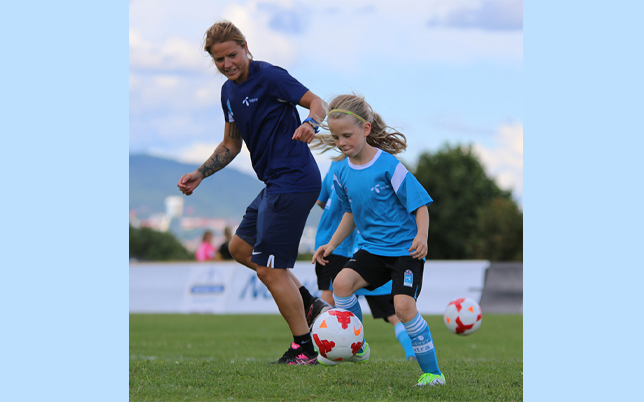
What is identification, and why is it necessary to compare us with other persons? Simply, you do not understand who you are without comparing. And as you know, the easier and more logical it is to understand them better.
But identification is also a signal system so you and other know how you going to act. If you are a father you know more or less how a father act because you did have a father or have seen other fathers acting. In other words you are going to copy but in the same time adapt to the time you are living in. Identification and behaviour is with other words somethings that is changing depending on the time and situation.
Identification gives you two important ways to choose: The first is to identify yourself and be identified as a stereotype with a fixed and oversimplified image of yourself. Number two, to be a “Kameleont,” an having control over your personality functions such as feelings and thinking.
I will come back to how you do this in the second part of this module.
You’ve probably heard this before; it’s only to be yourself! But, hum, what does that mean?
Allow me to use myself as an example, and I recommend you do the same, summarizing what makes you identify as you do. Then, later in the course, we will talk about things that affect your decision.
As a child, with long blond hair and blue eyes, and a decent singing voice, I was perceived as a “little angel.” As a result, I often performed singing in front of my family and a religious organization in Sweden. The reason for this was simply that my grandparents were actively Christians.
After this, I became a fantasizing dreamy child who could not even keep track of birth year and date.
Back to long hair again in the teens, but unfortunately, not as an angel. Instead, I became a little devil and constantly challenged, above all, my teachers.
I was regulated from school for a year and received training as a blacksmith. After two more years of education, I got a job as a repairman at a sawmill where I had worked every summer since the age of 15. I hated my job!
I applied for and got a summer job at a children’s camp. I loved my job!
I was drafted into the military as a “platoon commander student.” According to many around me, a testament to my ability. But unfortunately, or somewhat better, the rebel woke up inside me again because I perceived that my military comrades thought this was a game, and as long as you did do as you were told, everything would be ok.
I refused to shoot! Was offered by a psychiatrist to sign a “blank paper” or the alternative to professing as a profound religious believer to avoid military exercises. Refused!
That was the first time I seriously started to think about how we choose the bad alternative even if we can understand what’s good and bad. It can’t be a good thing to produce guns, learn young to kill, and spend enormous money on the military industry. I know I make it simple now, and one legitimate question is that we need to defend ourselves, which is exactly what the Russian leader tells their people today, what we always have done: create a good excuse for a bad alternative.
In the next module, I will come back to this and why.
With low grades in school, I had to read a few courses to be admitted to the university. I was and am extremely curious, and it felt fantastic with all the input and the opportunity to explore new ways of thinking. It also felt amazing to have access to higher education, but at the same time, it was something bothering me. Today, I know I still identify myself as a blacksmith, not as a university student.
I was not so bad at football at a young age, which opened a door for work in the social sector. For example, a work where I got the opportunity to start homes for immigration children without parents in the country, and education programs and flexible paths for youths outside the traditional system.
If we now make a slight jump in time, I became a principal and then the education representative for the region where I lived. Later self-employed with a small private school, together with my wife in Catalonia and now retired with the ambition of writing about learning and the human’s most important ability; learning from the perspective of thinking and understanding.